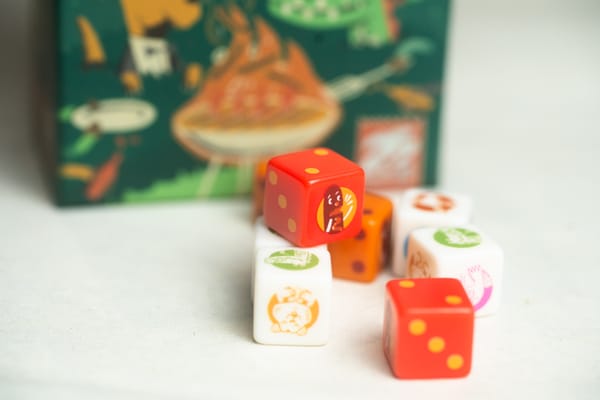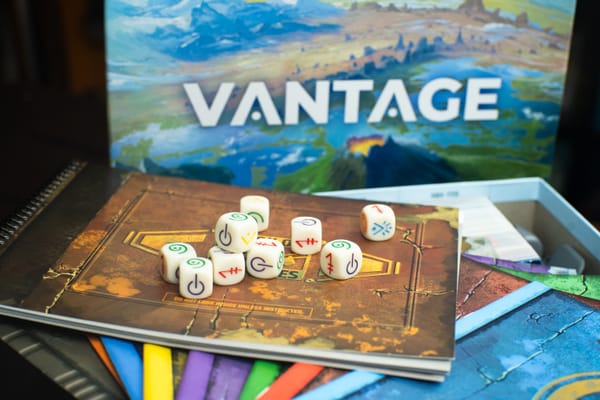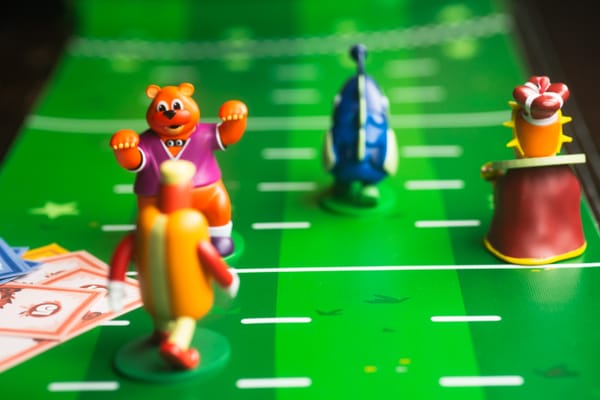Suboptimal play, Dominion and me
Do I love playing games poorly, or do I love to experiment? You be the judge.
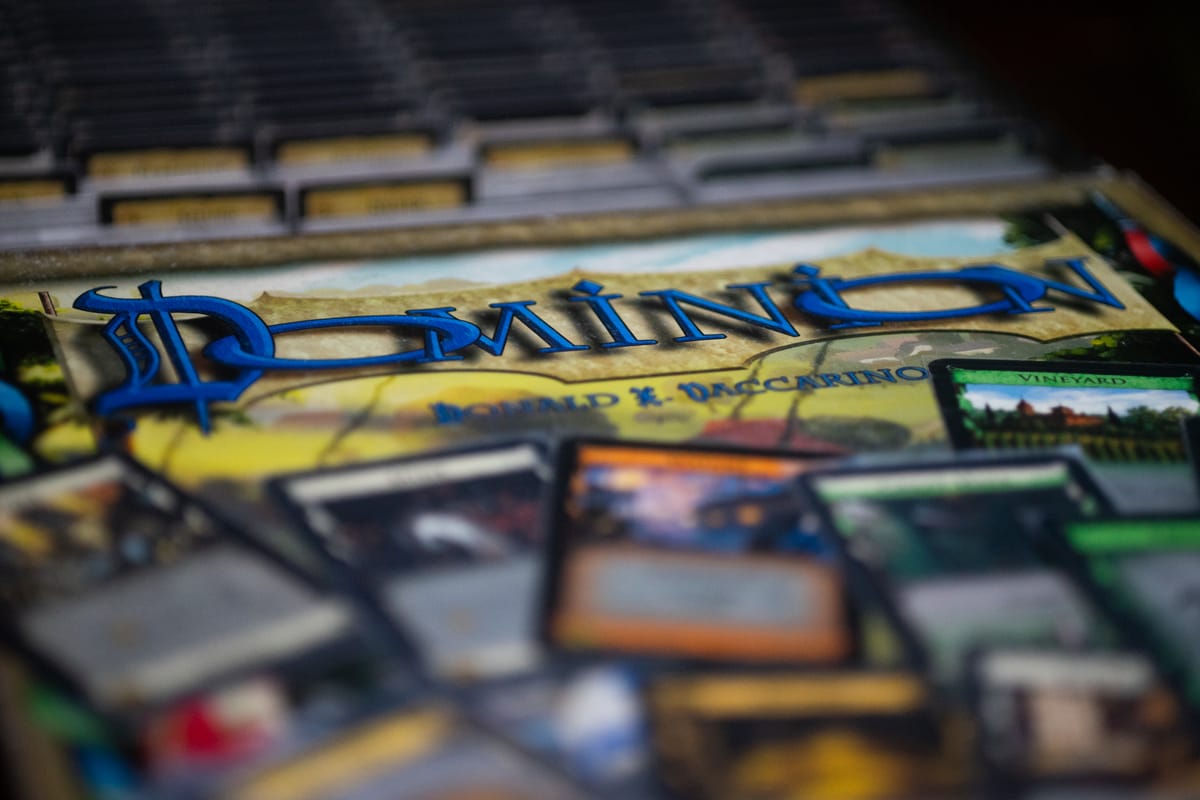
There’s a funny thing that happens to me every time I play Dominion.
Dominion (Vaccarino, 2008), is a classic. It’s a foundational game in the canon of board games, and it had a significant impact on video games, too. Deck-building, the mechanic it introduced to the world, is one of the greatest points of crossover between the digital world and the physical world. (OK, this point may be slightly exaggerated, but you do get the idea.)
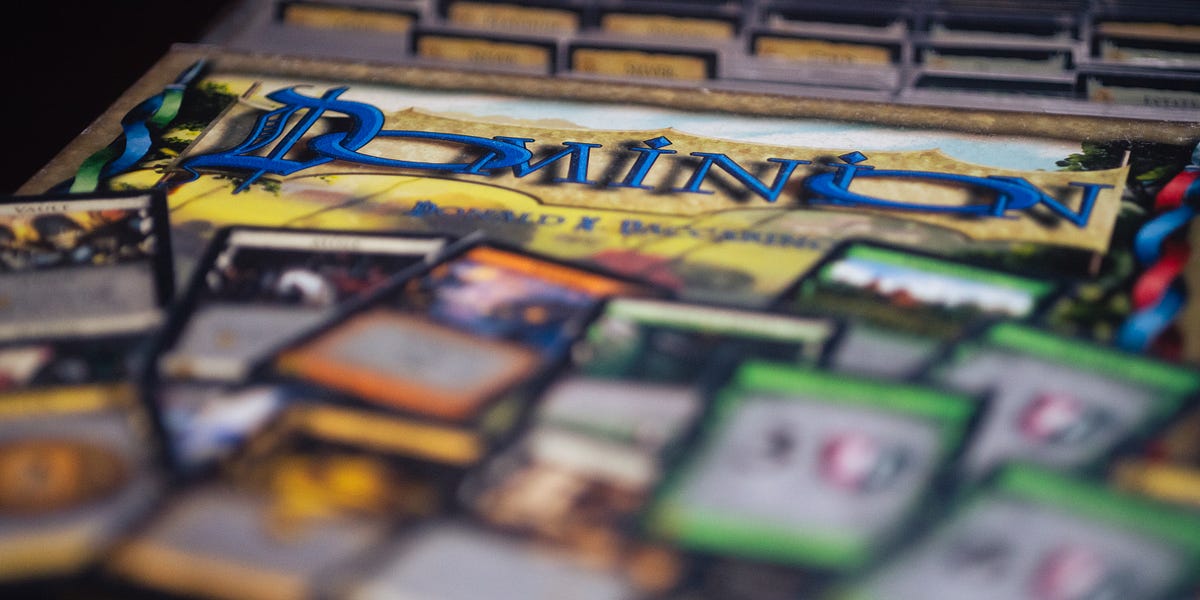
This isn’t about why Dominion’s a foundational board game, though. You can read my post from July 2024 about that if it’s what you’re looking for, but this is about something different.
It’s about how every time I play Dominion, I stop thinking about how I can win. My play turns suboptimal. I start focusing on just cycling through cards in my deck aimlessly, holding no regard for whether it’s a particularly good idea. Now, don’t take this as an excuse for my penchant for losing games — and don’t take it as me saying “I could win, if I only wanted to.” It’s neither of those things. I don’t know what it is, particularly, but I’ve been reading a book that gives me some good ideas.
C. Thi Nguyen’s Agency as Art (2020) discusses two modes of play: achievement play and striving play.
An achievement player plays to win; a striving player acquires, temporarily, an interest in winning, for the sake of the struggle. (…) In ordinary practical life, we pursue the means for the sake of the ends. But in striving play, we pursue the ends for the sake of the means.

I’m certainly more comfortable in that second box. I’m not somebody who’s particularly motivated by winning. I suspect this may be the case with many of you. Nguyen’s book and other philosophical writings are well worth any time you give them, and I am touching very briefly on his writing to highlight something a bit different.
Dominion pushes me toward suboptimal play, I suspect, because suboptimal play looks a lot like optimal play. A great Dominion player will find opportunities to increase their purchasing options, and they’ll do that through whatever means are best suited to the cards available to players that game. Good, effectively play converges on a few major themes in deck-building, and it’s no exception here: You want to get rid of the cards holding you back, and you want to add cards that will help propel you forward. It’s not always intuitive when you’ll want to drop cards from your deck, but that’s the essential puzzle.
If we understand optimal play as maximizing efficiency to enable easier access to great cards, then my suboptimal play looks a bit like maximizing efficiency for its own sake. If I can work through all of my deck in one turn, I’m extremely pleased, even if it didn’t lead to me gaining victory points or gold.
Thanks to the structure of a game like Dominion, I don’t feel any particular compunction about doing this. I don’t worry that I’m hurting the game. Dominion edges toward what some call “multiplayer solitaire,” which I think is too reductive a term for these sorts of games. Yes, Dominion features only some small opportunities to directly impact your opponents, and many (myself included) play largely without the cards that bring that type of play to the fore. It affords players the opportunity to make that choice, and it’s better for it. As a result, if my play isn’t directly influencing another player’s actions, then I tend to feel pretty good about whatever decisions I make, so long as I’m able to continue making interesting decisions. Of course, there are still ways play is influenced accordingly in Dominion. If I’m prioritizing buying many copies of a card that enables my engine, it’ll either lock other players out, or it’ll push them to buy copies themselves. It can influence the market. I’m not playing Dominion in a vacuum.
Are there games you (yes, you!) intentionally play suboptimally? Are there games during the playing of which you aim to experiment, positive outcomes be damned? The more I play a game, the more I find myself excited to experiment. It’ll often translate to taking a particularly difficult objective, even if I know failure is even more likely. It might come with taking one of the characters with an ability that isn’t quite so obvious. It might even just be taking a role that’s more involved than another. Sometimes it comes as a result of playing with less experienced gamers, but more often, it comes out of a desire to experience something new in my play.
An interesting wrinkle in all this, though, comes with app play. When I play a board game in an app against non-human opponents, my desire to win increases. My personal mode shifts from largely striving play to largely achievement play. Why, I wonder? Is it about feeling competitive with myself rather than with other humans? It’s a topic for another day, perhaps, as I’ve got quite a bit more thinking to do here. Until then, I think I can sit happily with the fact that I love making choices in games that don’t feel obvious.




